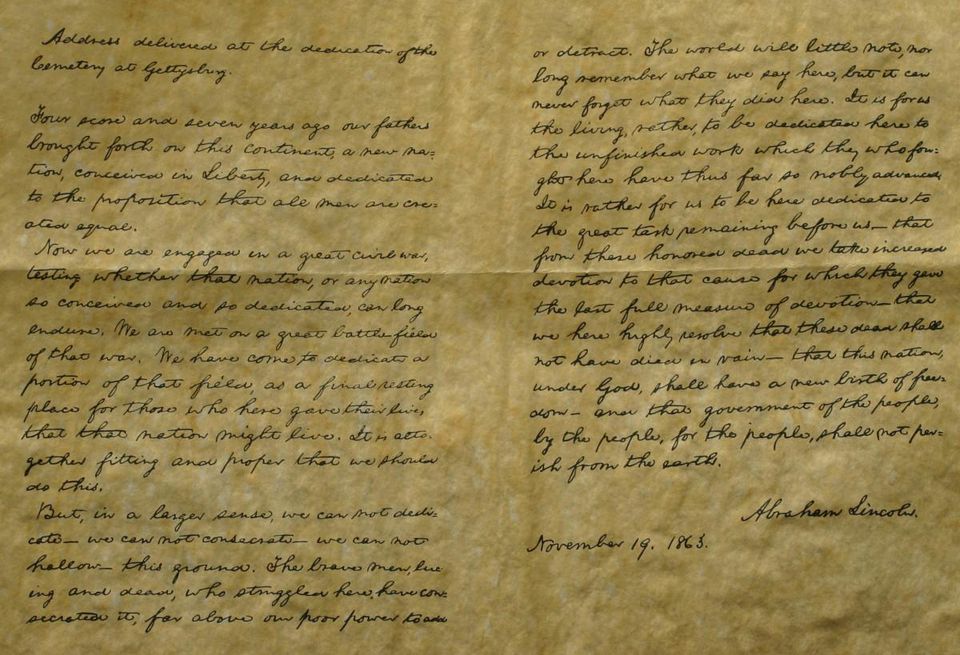Gettysburg Address


The Gettysburg Address, which has not been seen by the public since 1999, was voted as the 8th most important document in American history. This document belonged to John Nicolay, President Lincoln’s private secretary, and is believed to be the President’s reading copy.
The Address was delivered by President Lincoln on November 19, 1863, at a ceremony to dedicate a cemetery for the Union war dead at Gettysburg, the site of one of the bloodiest battles of the Civil War. President Abraham Lincoln was invited “as Chief Executive of the nation, formally [to] set apart these grounds to their sacred use by a few appropriate remarks.” The featured speaker was Edward Everett, one of the nation’s foremost orators. At the ceremony, Everett spoke for more than two hours; Lincoln spoke for two minutes.
In his address, President Lincoln invoked the Declaration of Independence, and its principles of liberty and equality, and spoke of “a new birth of freedom” for the nation. He continued to reshape the aims of the war for the American people-transforming it from a war for Union to a war for Union and freedom. Although Lincoln expressed disappointment in the speech initially, it has come to be regarded as one of the most elegant and eloquent speeches in U.S. history.
The Emancipation Proclamation, which was most recently displayed at the National Archives in 2001, was voted as the 6th most important document in American history.
President Abraham Lincoln issued the Emancipation Proclamation on January 1, 1863, during the American Civil War, formally proclaiming the freedom of all slaves held in areas still in revolt. The issuance of this Proclamation clarified and strengthened the position of the Union government, decreased the likelihood of European support of the Confederacy and, as the Union armies extended their occupation of the southern states, brought freedom to the slaves in those states. The Proclamation invited black men to join the Union Army and Navy, resulting in the enlistment of approximately 200,000 freed slaves and free black people before the War’s end.
Although the Emancipation Proclamation did not end slavery in the nation, it placed the issue squarely on top of the wartime agenda. It added moral force to the Union cause and was a significant milestone leading to the ratification of the 13th Amendment to the Constitution in 1865, formally outlawing slavery throughout the nation.
The Emancipation Proclamation linked the preservation of American constitutional government to the end of slavery and has come to take its place with the great documents of freedom.

Leave a Reply
You must be logged in to post a comment.